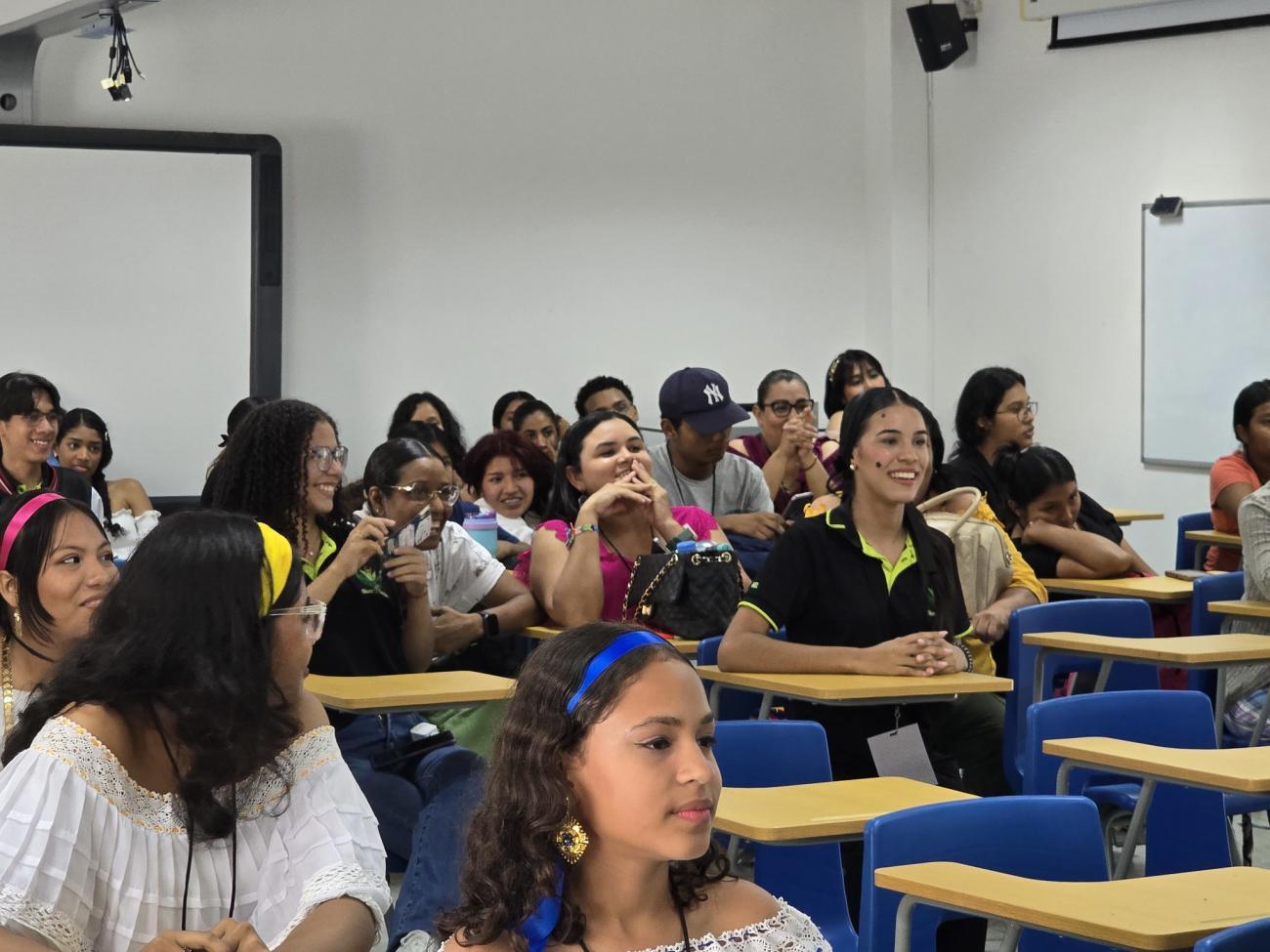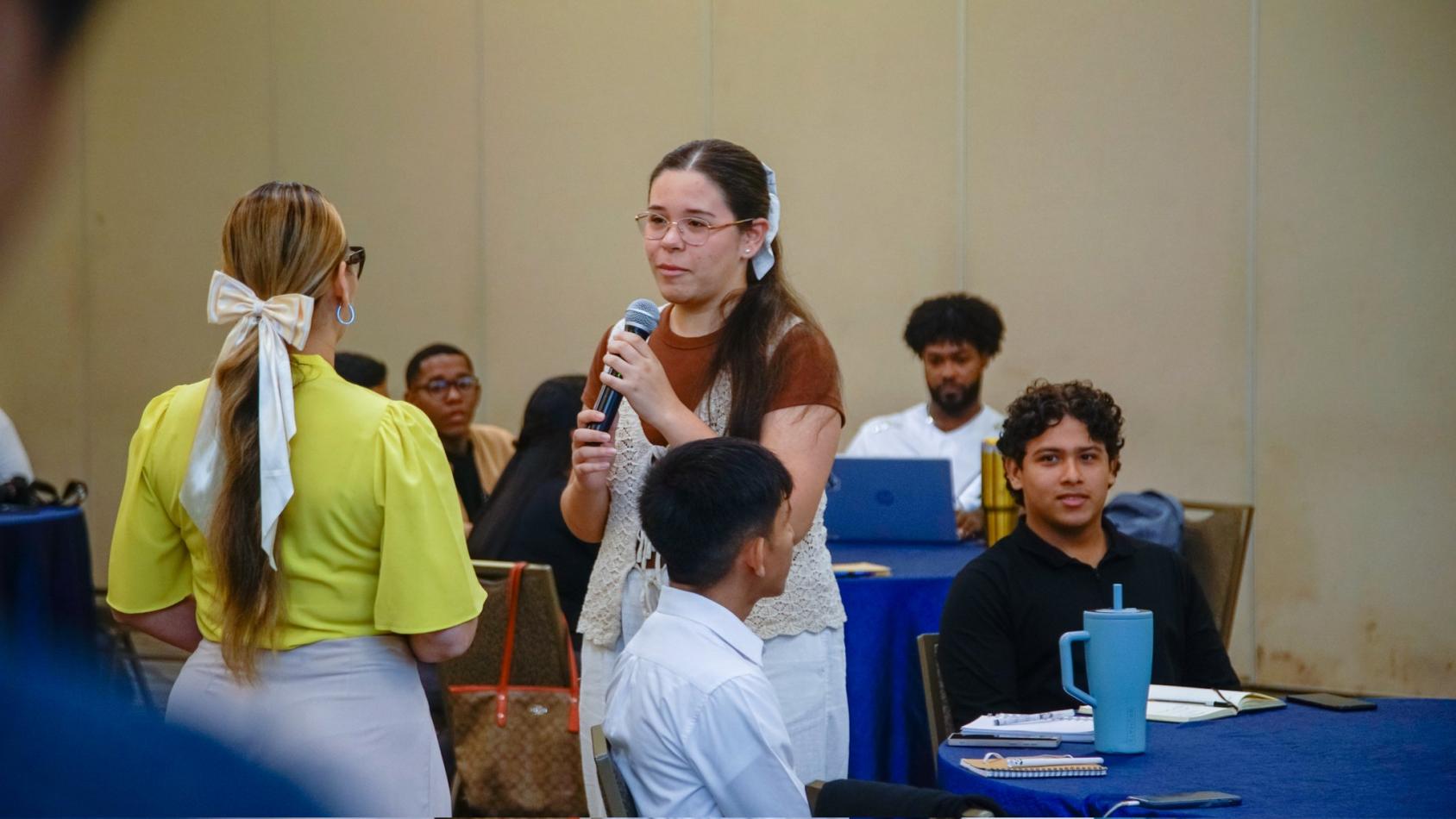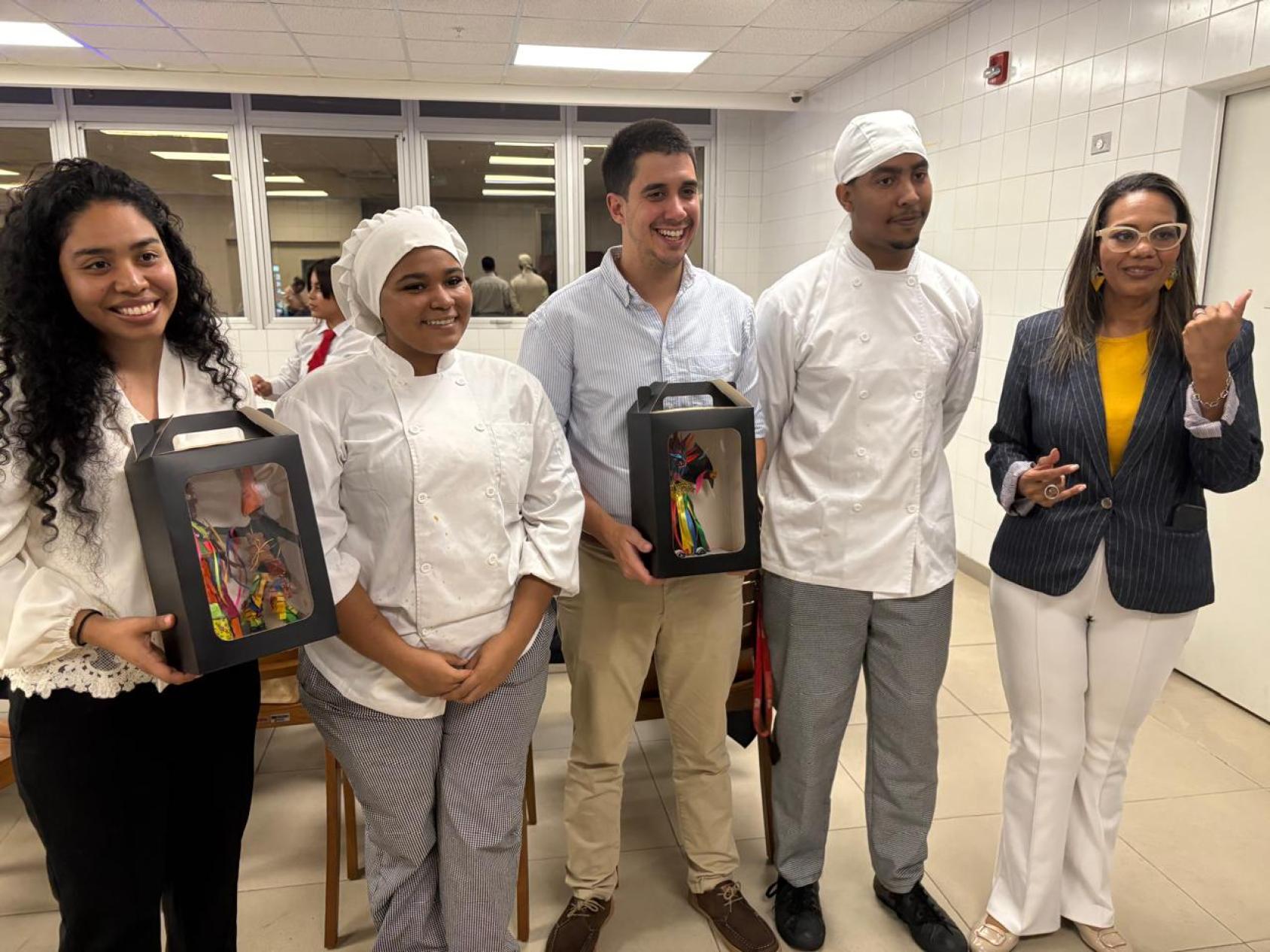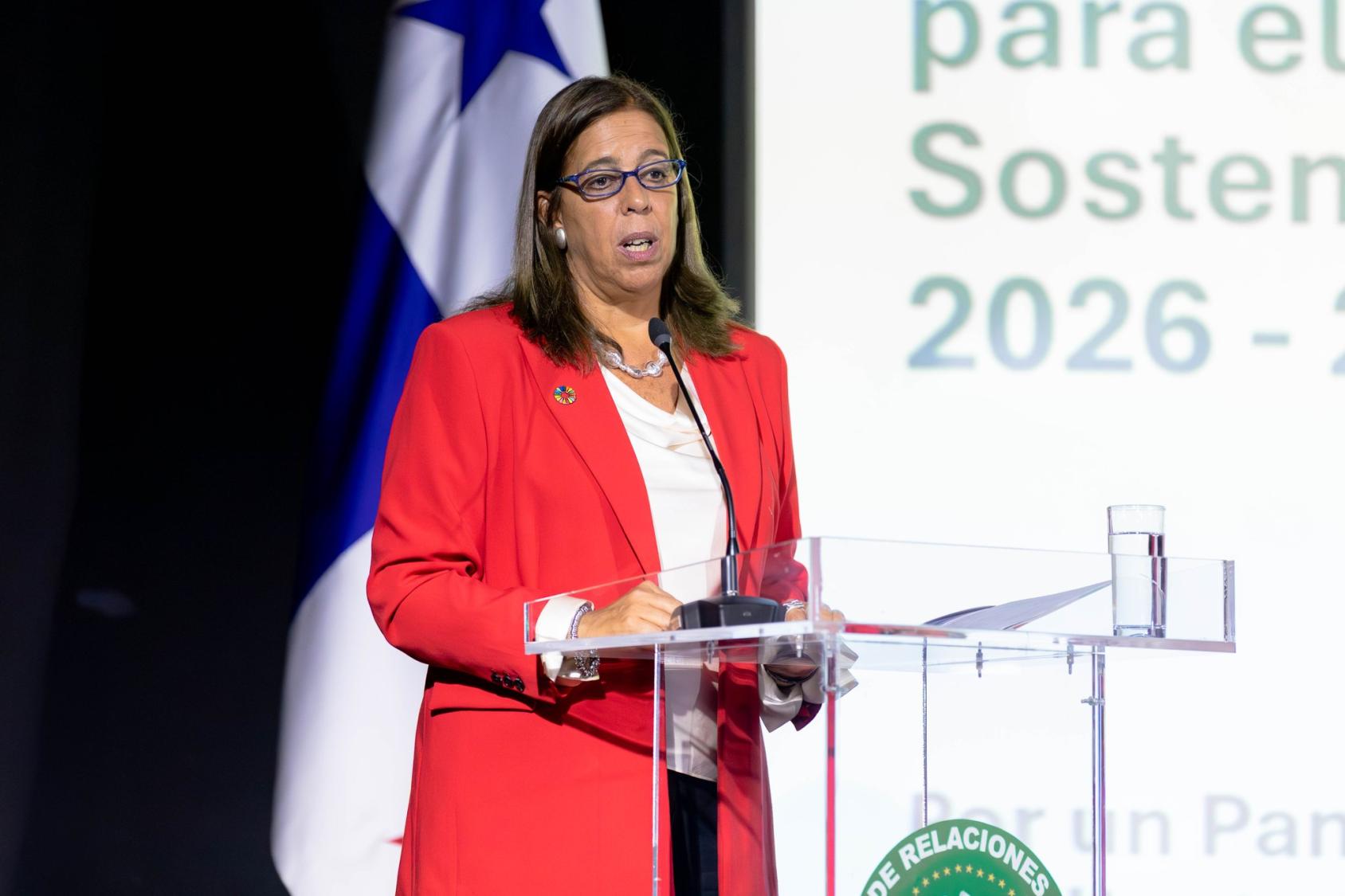Panama: Innovative Partnerships Transforming Education

As the world prepares for the World Social Summit 2025, attention is turning to how education can anchor a new social contract, one that breaks cycles of poverty, builds skills for decent work and ensures inclusion for all. In Panama, that vision is already taking shape, where coordinated investments in learning and training are helping people move from classrooms to careers.
In recent years, national institutions and the UN Country Team (UNCT), under the leadership of the Resident Coordinator (RC), have connected policy, financing and practice so that learners not only enroll in programmes but also advance, graduate and find decent, quality jobs. The approach is working. School enrollment has surged, digital access has widened and clear pathways from education to employment are emerging.
Resident Coordinator Ana Graça explains, “our role is to help national institutions deliver results that matter for people, by connecting resources, expertise and partners around shared goals.” This coordinated approach reflects a broader shift in how the UN supports development, not by implementing projects in isolation, but by helping governments align key areas such as education, employment and inclusion within a focused development plan.

Aligning education with economic opportunity
The Instituto Técnico Superior Especializado (ITSE) and the INADEH Panama technical training school, supported by the UN, shows what this shift looks like in practice. Built to deliver short-cycle technical programmes, it matches training with the jobs Panama’s economy is creating. The outcomes speak for themselves: 80 per cent of graduates from ITSE secure employment, and classrooms run at 97 per cent occupancy; evidence of both demand and relevance. These efforts demonstrate the results of curricula, employers, and public investment being coordinated around labour-market needs.
Across Panama, national reforms have also helped strengthen access to education. Primary and secondary enrollment climbed from 90 per cent in 2017 to 98 per cent in 2023, bringing the country close to universal schooling. Internet connectivity now reaches 85 per cent of the population, widening access to online learning and the skills a modern economy requires.
However, progress has not reached everyone equally. Behind those impressive averages lie persistent inequalities. Less than 10 per cent of students who completed secondary education in 2023 graduated from schools in indigenous areas, and many rural communities still lack digital platforms and appropriate content. Addressing these disparities requires targeted investments and partnerships that ensure national progress translates into opportunities that reach all communities in the country.
Under the leadership of Resident Coordinator Graça, the UNCT has shifted from fragmented initiatives toward long-term strategic partnerships that align national priorities and targeted support with international expertise and financing.
More than $80 million has been mobilised by the RC and the UNCT, with the International Labour Organization (ILO), UN Development Programme (UNDP), UN Office for Project Services (UNOPS) and UN Population Fund (UNFPA) to strengthen technical education and connect education with employment generation, focusing on sectors powering Panama’s growth: logistics, technology, tourism and aeronautics. The transformative result is thousands of youth with more opportunities to access the formal labor market, including in regions where stable jobs were once scarce. For young people, these opportunities are a route to a steady income and an exit from intergenerational poverty.

Teachers at the heart of change
Building a strong education system depends on equipping teachers with the tools and confidence to innovate in the classroom. Through the Entre Pares (“Among Peers”) programme, a partnership between the Ministry of Education, the UN Educational, Scientific and Cultural Organization (UNESCO), and Huawei, Panama’s 52,000 in-service teachers are receiving structured digital-literacy training for the first time. They now have access to in-person and online courses, open educational resources and a massive open online course (MOOC) on artificial intelligence for classroom use and content creation.
With its recent relaunch, the Ministry is establishing nearly 70 teacher-education centres across the country. These centres will allow educators to produce their own multimedia content and exchange classroom practices, creating a professional learning community that keeps innovation alive.
“The Entre Pares programme was a great experience that allowed me to connect with colleagues from different subjects and learn together,” said Eduardo Arabúz, a teacher who now trains others after completing the programme. “I really value the opportunity to keep growing professionally and to use the digital tools I learned to improve my teaching.” For fellow teacher Noris Núñez, the experience has been equally transformative. “Entre Pares helped me discover new technological tools that are very important for me and my students,” she explained. “They are more motivated and enthusiastic about learning because of these changes.”
Multiply those experiences across thousands of classrooms, and the national statistics begin to make sense. Expanding connectivity now translates into real learning gains rather than a wider digital divide. Teachers are using technology to transform pedagogy, putting students at the centre of the education process and helping them connect knowledge with opportunity.

Shaping the future of education policy
To sustain progress, Panama is also investing in the governance of education. A national Think Tank for Education, convened with support from the UN Children’s Fund (UNICEF) and UNESCO and backed by the Resident Coordinator’s Office (RCO), brings together over fifteen institutions, from teacher unions and parent associations to civil society, the private sector and international partners. It provides a space to set a shared long-term vision, prioritise reforms and promote accountability for results. This collaborative platform ensures that education policy evolves with the needs of the economy and society, a key step in realising the Social Summit’s call for education as the foundation of social justice.
Harnessing the UN network for impact
Powering these transformative shifts requires tapping into the UN’s broad network of expertise and resources. The RCO plays a pivotal role in linking specialised agencies and partners, including multilateral development banks, ensuring that international support amplifies national priorities rather than fragmenting them.
“As a non-resident agency in Panama, UNESCO's participation in national initiatives like the Entre Pares Programme has been made possible through the RCO’s strategic support. The RCO has created essential dialogue spaces with key stakeholders, enabling us to showcase our expertise and added value despite not having a physical presence. Their advisory role and coordination mechanisms have fostered the inter-institutional trust necessary to advance sustainable development through innovative cooperation frameworks,” says Romina Kasman, Education Specialist, Head of Sector, UNESCO Regional Office for Central America, Mexico and Colombia.
This coordinated model, which connects local leadership with global expertise, is helping Panama turn education into a driver of inclusion, productivity, and shared prosperity. It lays the foundations of a new social contract that equips people with the skills, opportunities, and agency to shape their own futures.
Click here to read more coordination results from Panama.













